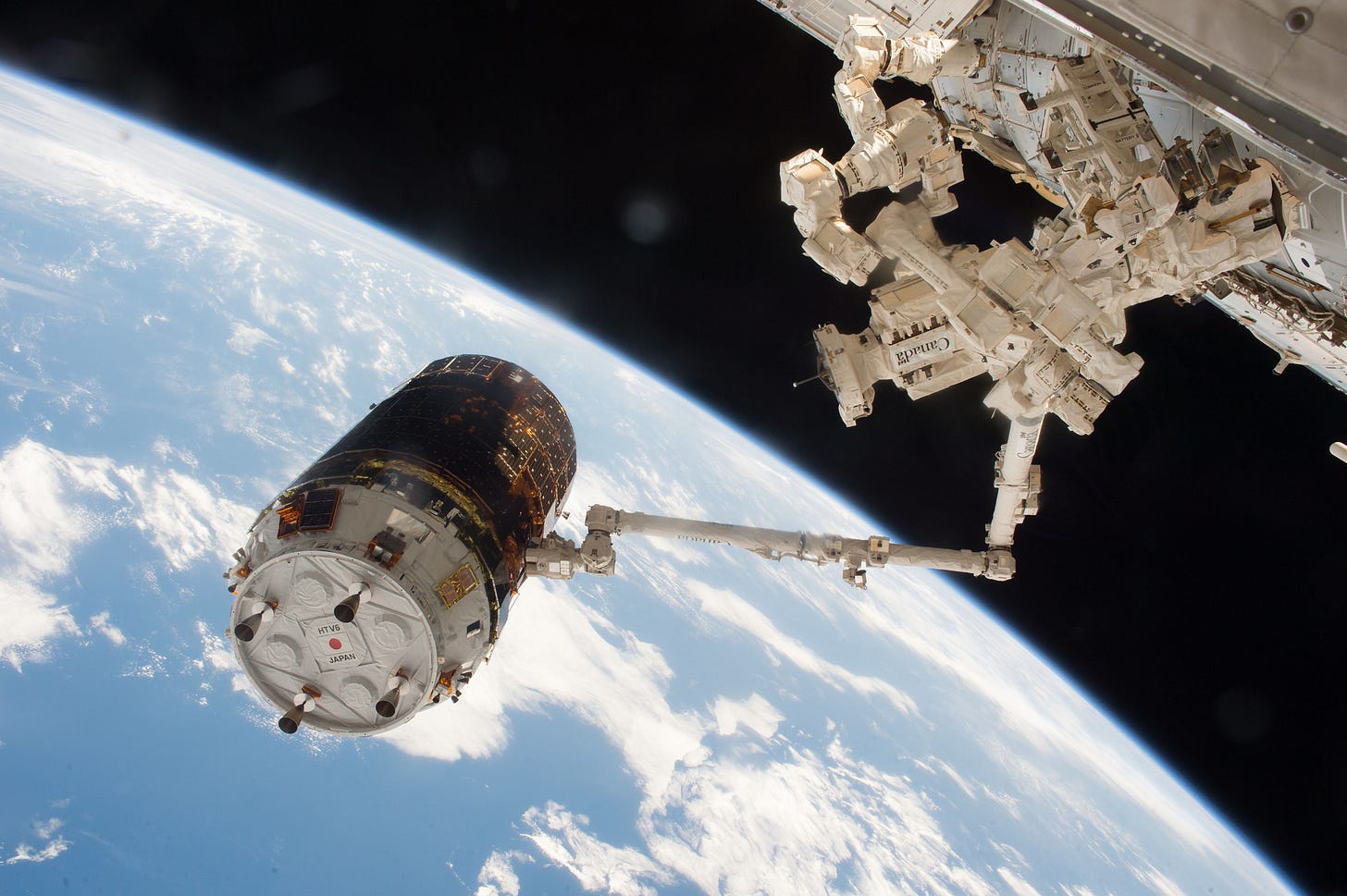International Starships
Recent negotiations regarding Japan's role in the Artemis program highlight the role international partners play, and how the global launch market could be about to undergo a seismic shift.
I have not talked much about the Japanese space agency JAXA here before - an oversight of mine, as they do quite a lot. Japan is a major partner on the ISS, having both their own module Kibo - which among other things conducts interesting partial gravity experiments - and a resupply vehicle HTV. They have performed a number of interesting interplanetary missions including asteroid sample returns, and have an indigenous launch capability.
NASA and JAXA have just signed a new agreement on Artemis cooperation to supply a pressurised rover for surface exploration. There is plenty of coverage of this deal in the news, and I thought I’d add my perspective from the UK as to what we can learn from Japan here. The Japanese economy is 1.7 times the size of ours, if you measure GDP by purchasing power parity, but their contribution to spaceflight - especially human spaceflight - exceeds ours in multiple metrics by much more than that.
Japan has been a signatory of the Artemis Accords since their inception in 2020 - and this new deal is build on top of that agreement. The pressurised rover has been under development by Toyota, in cooperation with JAXA, since 2019, and this new deal with NASA trades its services for the Artemis program for putting two Japanese astronauts on the lunar surface. Japan had already agreed to supply cargo to the Gateway station with an upgraded version of their upcoming HTV-X cargo capsule, in exchange for sending one astronaut to that station. The wording of the new agreement suggests this will not be one of the astronauts assigned to a surface mission, meaning Japan has secured three Orion seats in total. Given that, even once it reaches it’s target cadence, SLS/Orion will only have four seats available per year, this is a considerable amount for a single international partner.
In contrast, the UK has no firm seats on any future mission. The Secretary of State for Science, Innovation and Technology Michelle Donelan claimed after a meeting with NASA that a UK astronaut could be on Artemis 3, but this seems unlikely. Due to supplying the Orion service module, ESA will certainly get seats on future Artemis missions, and ESA could in principle choose one of its British astronauts to fill that seat but in practice I think that priority may be influenced by who the largest contributors to ESA are, and I would therefore bet that the first European Artemis astronaut will be French or possibly German. Likely the staff at NASA were being polite to a visitor anyway, as the director of ESA has said there would be European astronauts on Artemis 4 and 5. The entire continent has the same number of human landing slots as Japan does, despite being collectively a much larger entity.
A Japanese Starship
Another interesting part of the new agreement was a Space Technology Safeguards Agreement:
The United States and Japan commenced negotiations on a space technology safeguards agreement which is designed to provide the legal and technical framework for U.S. commercial space launch from Japan. The space technology safeguards agreement has the potential to open new commercial opportunities in a range of advanced technologies related to space.
This is relevant to something I have been working on - a campaign to bring Starship launches to the UK using a petition asking the government to extend its spaceport program for larger vehicles. The legal barriers, specifically ITAR, are frequently raised to me as objections, and this agreement shows that such barriers are negotiable.
There is evidence SpaceX are interested in launching from other countries, and there are reasons to believe Japan might have Starship specifically in mind here if we take a look at the economics of their newest rocket, the H3.



